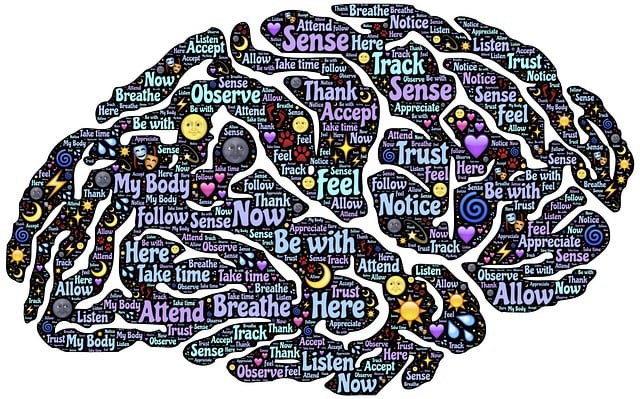Mental wellness journaling, combined with Broomfield Relationship Issues Therapy (BRIT), is a powerful tool for personal growth and self-care. BRIT utilises journaling prompts to enhance emotional regulation, communication, and conflict resolution skills, leading to healthier relationships and improved mental health. By dedicating just 15-20 minutes daily to journal, individuals can gain deeper insights into their thoughts and feelings, track therapy progress, and reduce stress and anxiety. This accessible practice, when incorporated into a consistent routine, contributes to holistic mental wellness.
Mental wellness journaling is a transformative practice, offering individuals a safe space for self-reflection and growth. In this article, we explore its benefits through the lens of the Broomfield Relationship Issues Therapy approach, which utilizes prompts to guide introspection. We’ll delve into strategies for creating a consistent mental wellness journaling routine, empowering readers to navigate their thoughts and emotions effectively. Discover how this simple yet powerful tool can enhance your overall well-being.
- Understanding Mental Wellness Journaling: A Powerful Tool for Self-Reflection and Growth
- The Broomfield Relationship Issues Therapy Approach to Journaling Prompts
- Creating a Consistent Practice: Tips for Effective Mental Wellness Journaling
Understanding Mental Wellness Journaling: A Powerful Tool for Self-Reflection and Growth

Mental wellness journaling is a powerful tool for self-reflection and personal growth that has gained significant traction in recent years. By dedicating time to record thoughts, feelings, and experiences, individuals can develop a deeper understanding of their mental health and emotional regulation. This practice allows for introspection, identifying patterns, and tracking progress over time. It’s not just about writing; it’s a form of self-care that enables folks to navigate their mental wellness journey with increased clarity and resilience, especially in addressing Broomfield Relationship Issues Therapy.
In today’s fast-paced world, where Mental Health Awareness is paramount, journaling provides an accessible way to foster emotional well-being. It encourages individuals to pause, reflect, and process their day-to-day experiences, which can be particularly beneficial for managing stress, anxiety, or even post-therapy integration. Through regular expression, one can cultivate a stronger sense of self, uncover hidden truths, and gain valuable insights that contribute to holistic mental wellness.
The Broomfield Relationship Issues Therapy Approach to Journaling Prompts

The Broomfield Relationship Issues Therapy (BRIT) Approach to Journaling Prompts focuses on fostering self-awareness and emotional regulation through reflective writing exercises. This therapeutic method encourages individuals to explore their thoughts, feelings, and experiences in a safe and non-judgmental space. By integrating BRIT techniques into journaling practices, users can effectively navigate complex emotions and identify patterns that contribute to relationship challenges.
The mental health education programs designed around this approach emphasize the importance of self-reflection and personal growth. Through prompts tailored to specific aspects of relationships—such as communication styles, conflict resolution strategies, and attachment styles—individuals are guided to gain insights into their interactions with others. This process facilitates stress reduction methods and promotes healthier relationship dynamics, ultimately enhancing overall mental wellness.
Creating a Consistent Practice: Tips for Effective Mental Wellness Journaling

Establishing a regular journaling routine is a powerful way to nurture your mental wellness, especially when supported by Broomfield Relationship Issues Therapy or Trauma Support Services. Consistency is key; dedicating just 15-20 minutes each day can make a significant impact over time. Consider setting a specific time and location for your practice, making it a non-negotiable part of your day, much like brushing your teeth. Incorporate prompts that resonate with your current needs, whether exploring emotions, tracking progress in therapy, or simply venting thoughts.
For instance, if you’re navigating crisis intervention guidance, prompts like “What triggered this episode?” or “What coping mechanisms have been helpful today?” can be insightful. Public awareness campaigns development often emphasizes the importance of self-reflection and journaling can enhance these practices. Remember, there’s no right or wrong way; let your unique experience guide you, allowing for a deeper connection with yourself and your journey towards mental wellness.
Mental wellness journaling is a versatile tool that, when incorporated into daily life, can significantly enhance self-awareness and personal growth. As discussed, the Broomfield Relationship Issues Therapy approach offers a structured yet adaptable framework for exploring thoughts and emotions through prompts designed to stimulate reflection. By consistently practicing mental wellness journaling, individuals can cultivate resilience, improve coping mechanisms, and navigate life’s challenges with greater clarity and purpose. Embrace this powerful tool to embark on your journey of self-discovery and empowerment.












